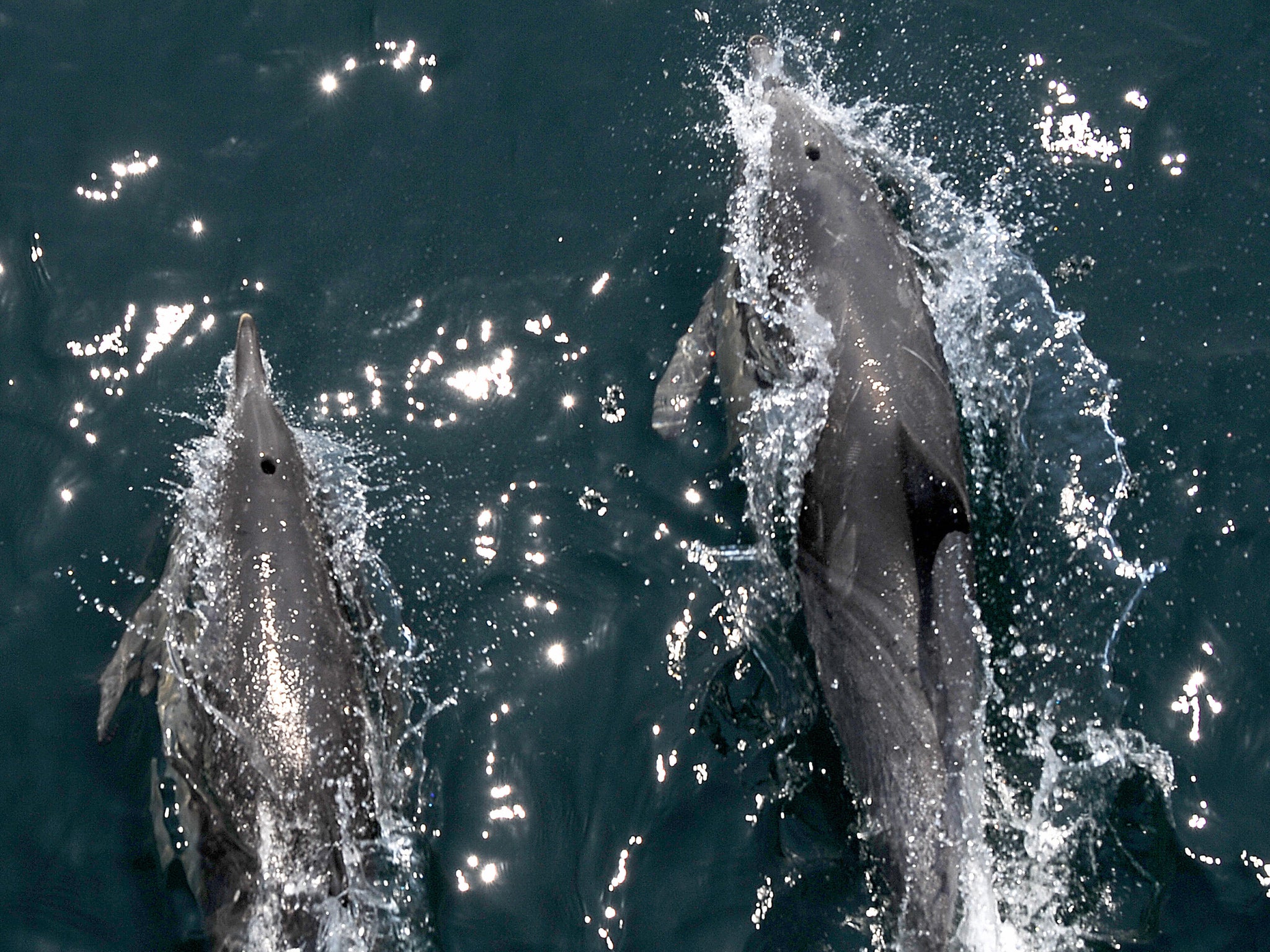Mine-sweeping US Navy dolphins in Croatia to help comb seabed for unexploded bombs
Team of six bottlenoses will use impeccable hearing and sonar capabilities to mark devices dropped during conflicts in the region

Your support helps us to tell the story
From reproductive rights to climate change to Big Tech, The Independent is on the ground when the story is developing. Whether it's investigating the financials of Elon Musk's pro-Trump PAC or producing our latest documentary, 'The A Word', which shines a light on the American women fighting for reproductive rights, we know how important it is to parse out the facts from the messaging.
At such a critical moment in US history, we need reporters on the ground. Your donation allows us to keep sending journalists to speak to both sides of the story.
The Independent is trusted by Americans across the entire political spectrum. And unlike many other quality news outlets, we choose not to lock Americans out of our reporting and analysis with paywalls. We believe quality journalism should be available to everyone, paid for by those who can afford it.
Your support makes all the difference.Croatia's tourist capital Dubrovnik has a new star attraction to rival its stunning medieval walled city.
Tourists have been flocking to the city's palm-lined pier to catch a glimpse of American mine-sniffing dolphins, waiting in an enclosure before being sent off on a very important mission.
The dolphins, which belong to the US Navy, have been flown out to Croatia to comb its coastline for unexploded mines and bombs left over from a string of wars dating back to the beginning of the last century.
The team of six highly-trained bottlenoses are working with US divers and members of the Croatian navy to scour the pristine waters of Dubrovnik for devices that may have ended up at the bottom of the sea following both the world wars and the Yugoslav Wars of the 1990s.
During their three-week mission, the aquatic mammals will search areas of interest, locating potentially dangerous devices and marking them for Navy divers to photograph, identify and dispose of. Divers from Croatia, Montenegro and Slovenia - all once part of Yugoslavia - will also take part in the mission.
Dolphins are famed for their advanced hearing and sonar capabilities, as well as their ability to see underwater, and therefore have been used by the Navy since 1959 to help locate underwater objects. They are also able to make repeated dives without suffering side effects that are common in human divers, such as 'the bends' or decompression sickness.
"Dolphins are very good at finding very small things in very cluttered shallow bottoms," team spokesman Christian Harris told US military news website Stars and Stripes. “Machinery can’t do that.”
The animals working in Croatia were born in a Navy facility in San Diego, where they will have undergone two years training before taking part in any underwater missions, Harris said.
Any mines found are likely to be the result of artillery or naval shells fired during the Yugoslavian war of independence in that started in 1991, when Dubrovnik was cut off for four months during a siege by the Yugoslav navy, which was at the time comprised of Serbia and Montenegro.
The goal of the dolphins' mission, dubbed Dolphin 2013, is to enable Croatia, Monenegro and Slovenia to build a long-term, sustainable underwater demining programme of their own, according to organisers.
The dolphins were flown out to the Mediterranean city on a C-17 military jet, where they lay in rubber hammocks suspended in special tanks partially filled with water.
Join our commenting forum
Join thought-provoking conversations, follow other Independent readers and see their replies
Comments